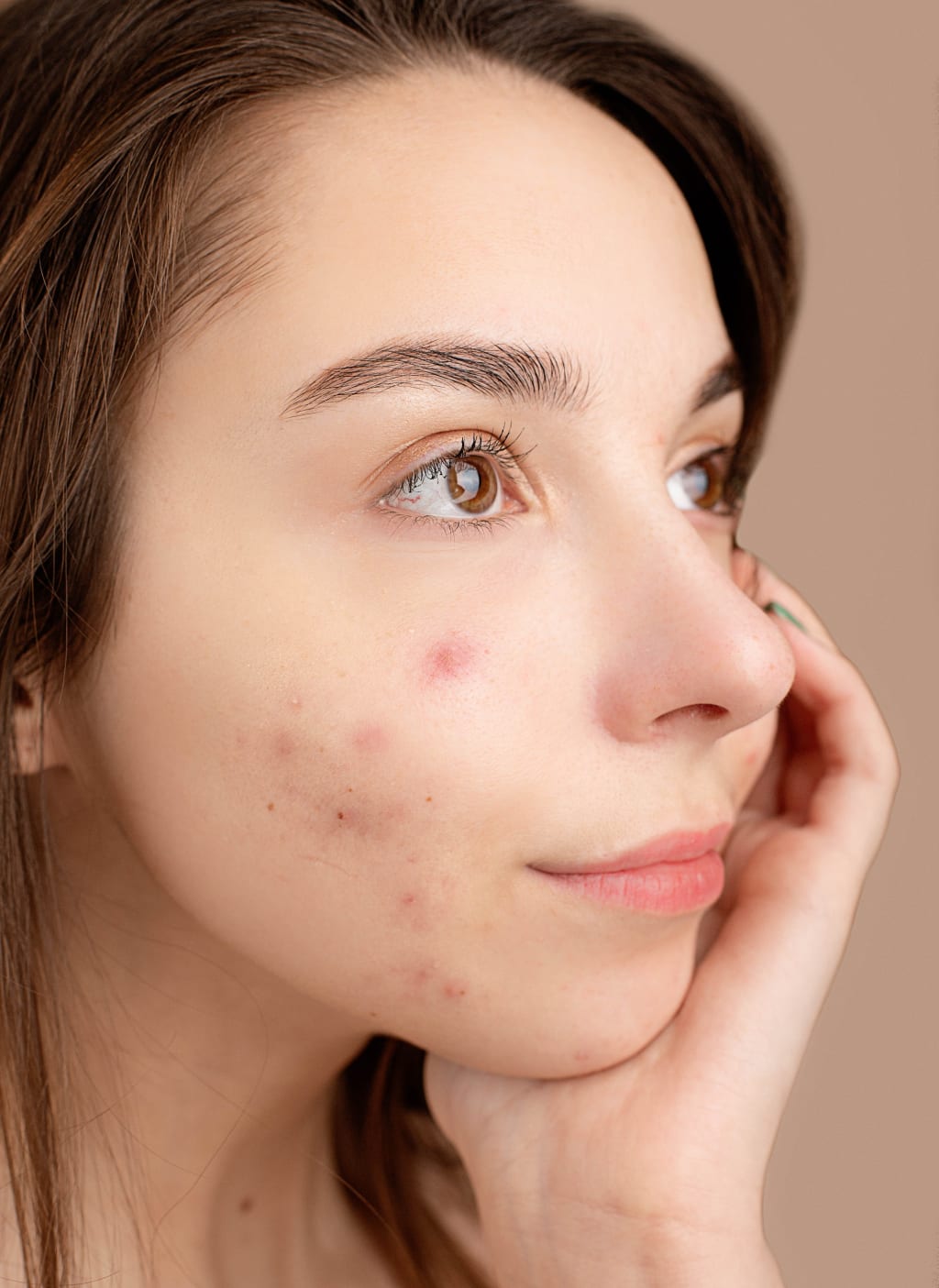What is acne? Why acne occurs? Should we use cosmetic products?
Acne is a common skin condition that affects millions of people around the world. It is characterized by the appearance of pimples, blackheads, whiteheads, and other types of blemishes on the face, neck, chest, and back. The condition is caused by a combination of factors, including hormonal changes, genetics, and skin irritation.

What's acne?
Acne can be treated using a variety of methods, including topical creams and gels, oral medications, and lifestyle changes. Topical treatments such as benzoyl peroxide, salicylic acid, and retinoids are effective in treating mild to moderate acne by reducing the amount of bacteria on the skin and unclogging pores.
Oral medications, such as antibiotics and hormonal contraceptives, can also be prescribed to help clear up acne. Antibiotics help to reduce the amount of bacteria on the skin, while hormonal contraceptives can regulate hormone levels and reduce acne breakouts.
In addition to medical treatments, there are several lifestyle changes that can help prevent and treat acne. Keeping the skin clean and hydrated by washing the face twice a day and using a non-comedogenic moisturizer can help prevent clogged pores and reduce the appearance of acne. Eating a balanced diet that is low in sugar and high in vitamins and minerals can also help to improve the overall health of the skin.
While acne is a common and treatable condition, it can still have a significant impact on a person's self-esteem and confidence. If you are struggling with acne, it is important to seek the help of a dermatologist or other skin care professional to determine the best course of treatment for your specific needs.
In conclusion, acne is a common skin condition that can be treated with a combination of medical treatments, lifestyle changes, and good skin care practices. If you are struggling with acne, seek the help of a professional to find the best treatment for you and regain your confidence.
(CLICK HERE FOR THE BEST COSMETIC PRODUCTS)
Why acne occurs?
Acne occurs when the hair follicles in the skin become clogged with oil and dead skin cells. This can cause the follicle wall to break, allowing bacteria to grow inside the follicle and causing inflammation and redness. The main factors that contribute to the development of acne include:
Hormonal changes: Hormonal fluctuations, such as those experienced during puberty, menstruation, and pregnancy, can increase oil production in the skin, leading to clogged pores and acne breakouts.
Genetics: Acne can run in families and can be influenced by a person's genetic makeup.
Bacteria: Propionibacterium acnes (P. acnes) is a type of bacteria that commonly resides on the skin and can contribute to acne when it overgrows and becomes trapped in clogged pores.
Skin irritation: Certain skin care products and cosmetic products, such as those that contain heavy oils or fragrances, can irritate the skin and contribute to the development of acne.
Medications: Certain medications, such as corticosteroids, lithium, and androgens, can increase oil production in the skin and contribute to the development of acne.
Diet: While there is limited evidence to suggest that diet plays a major role in the development of acne, some studies have shown that a diet high in sugar, dairy, and processed foods may contribute to acne breakouts.
Should we use cosmetics about acne?
Whether or not to use cosmetics for acne depends on several factors, including the severity of the acne, individual skin type, and the type of cosmetic being used. In general, it is best to use non-comedogenic, oil-free cosmetic products that are specifically formulated for acne-prone skin.
If you have mild to moderate acne, using a light, non-comedogenic moisturizer and a gentle, non-irritating foundation may help to conceal redness and blemishes while still allowing the skin to breathe. However, it is important to be mindful of the ingredients in the products you use and to avoid those that contain heavy oils or pore-clogging ingredients, such as isopropyl myristate or sodium lauryl sulfate.
If you have severe or persistent acne, it is best to avoid using cosmetics altogether and to focus on treating the underlying skin condition with the help of a dermatologist. This may involve the use of topical creams, gels, and oral medications, as well as lifestyle changes and good skin care practices.
In conclusion, the use of cosmetics for acne depends on the individual and the severity of the condition. If you have mild to moderate acne, using non-comedogenic, oil-free cosmetic products may help to conceal redness and blemishes, while focusing on treating the underlying condition is the best approach for those with severe or persistent acne.





Comments
There are no comments for this story
Be the first to respond and start the conversation.